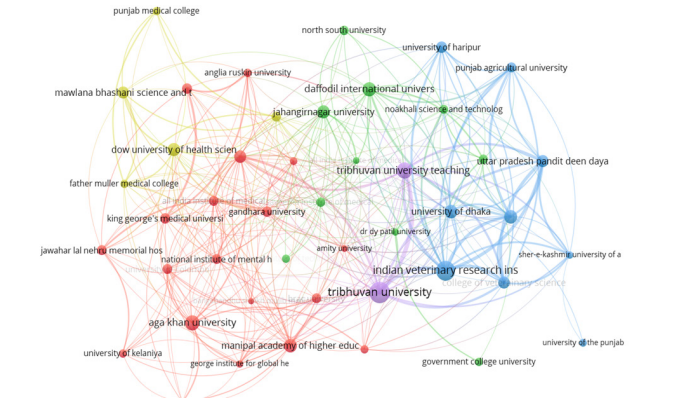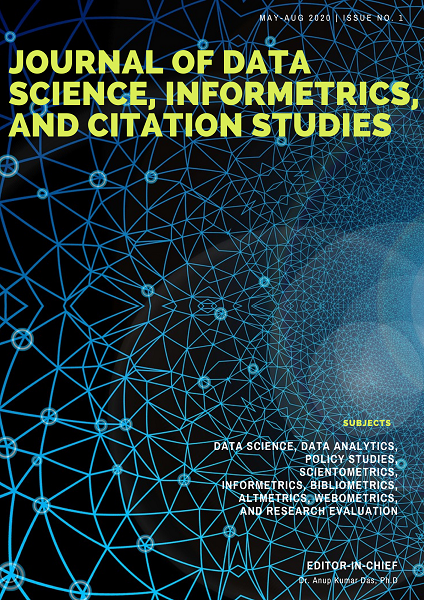A Scientometric Assessment of India’s International Collaboration with South Asia Countries in COVID-19 Research
DOI:
https://doi.org/10.5530/jcitation.2.3.26Keywords:
Collaboration, COVID-19, South Asia, International, Scientometrics, India, ResearchAbstract
Aim: This study seeks to ascertain India’s leadership status in collaborative research in COVID-19 at South Asia level and at international level using bibliometric indicators. Background: India has so far witnessed enormous growth in its international collaborative research in COVID-19 with developed and developed countries. In particular, India is credited to have provided technical assistance and initiated few research programmes for promoting international collaboration with South Asia. There is a need to understand the current status of India in collaborative research in COVID-19 with countries in South Asia as well as with countries outside South Asia. methodology: The research publications data was sourced from the Scopus database covering COVID-19 scholarly literature indexed as of May 2023. The data was systematically analyzed to create tables for understanding India’s performance in collaborative research at international, regional, national, institutional, and research author level. The country affiliation of co-authors to research papers was used as a methodology to identify and compute regional and international collaboration in research. The scope of analysis of COVID-19 collaborative research is limited to five South Asia countries namely India, Pakistan, Bangladesh, Sri Lanka and Nepal. The study presents a creative view of collaboration networks across affiliating countries, research organizations/institutes, and research authors to publications in COVID-19. Results: India contributed a 7.31% share to global output (506691) in COVID-19 research studies, as of May 2023. This global share of India is three times as much as the global share (2.45%) put together of four other South Asia countries, namely Pakistan, Bangladesh, Sri Lanka and Nepal. International collaborative publications by Pakistan, Bangladesh, Sri Lanka and Nepal accounted for a bulk of their national output (54.19% to 64.76%), in contrast India contributed just 27.92%. In overall, India contributed a total of 1293 international collaborative publications involving collaboration of two types. For instance, Type (i) covers publications from collaboration across South Asia countries which accounted for a 14.3% share (185) and Type (ii) covers publications from not just with South Asia countries but also from countries outside South Asia representing co-authors to publications under study. This type of inter-regional (international) collaboration accounted for an 85/7% share (1108). The role of India and other South Asia countries in international collaboration (1108) is very small. Most credit in research publications goes largely to developed and developing countries. These 1293 collaborative papers by India received an average of 22.17 citations per paper since their publication. Conclusion: The study concludes that though India dominates as a leading player in collaborative research at South Asia level in COVID-19, but its academic performance in international collaborative research has not been as significant. In this regard India needs to evolve suitable strategies and work out programmes in order to raise its international academic status in COVID-19 research.

Downloads
Published
How to Cite
Issue
Section
License

This work is licensed under a Creative Commons Attribution-NonCommercial-NoDerivatives 4.0 International License.



